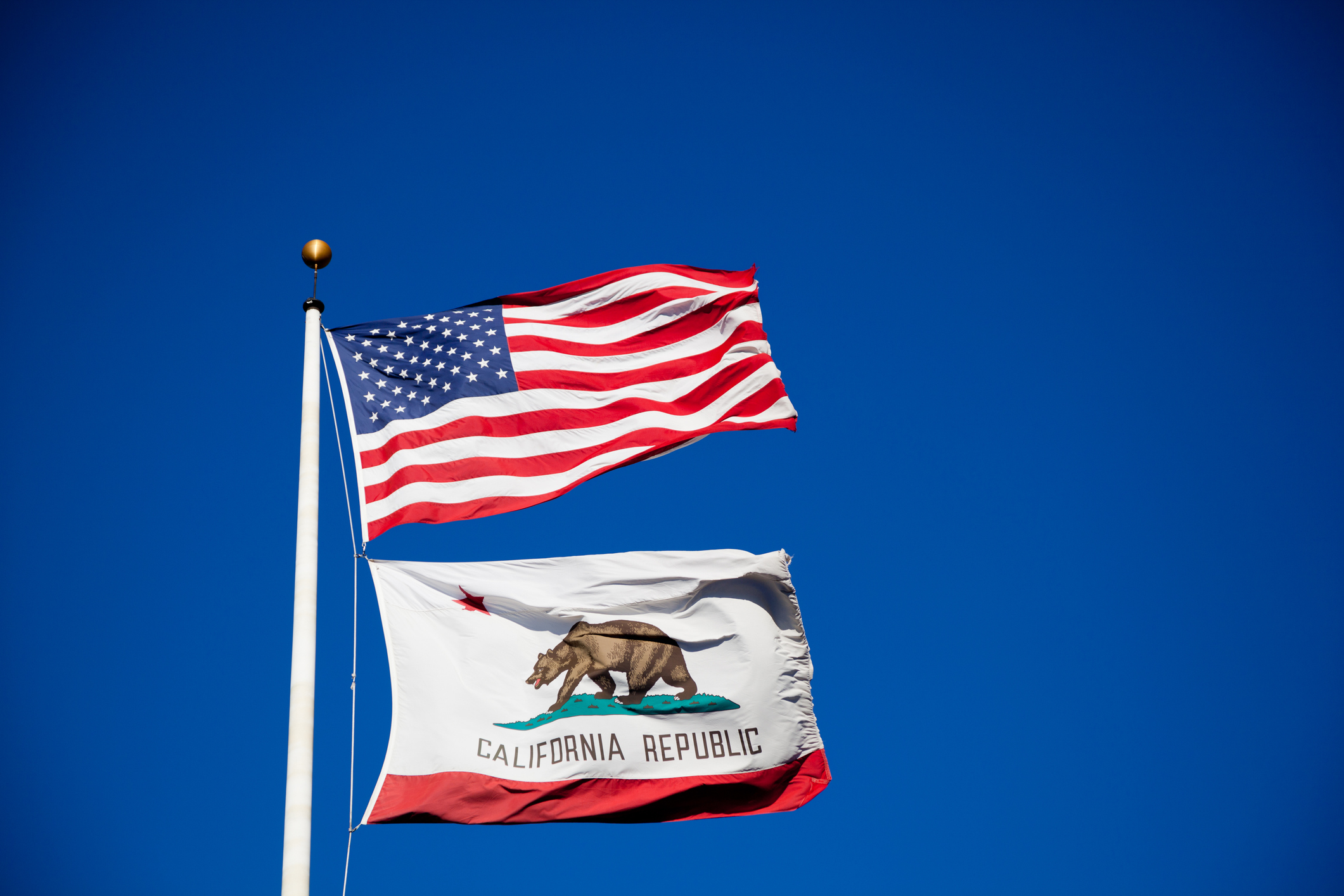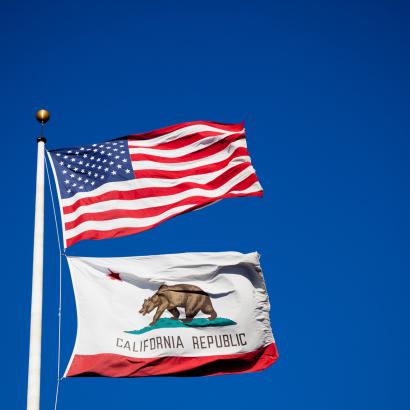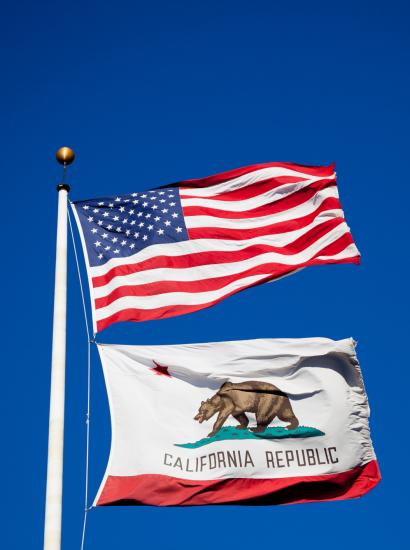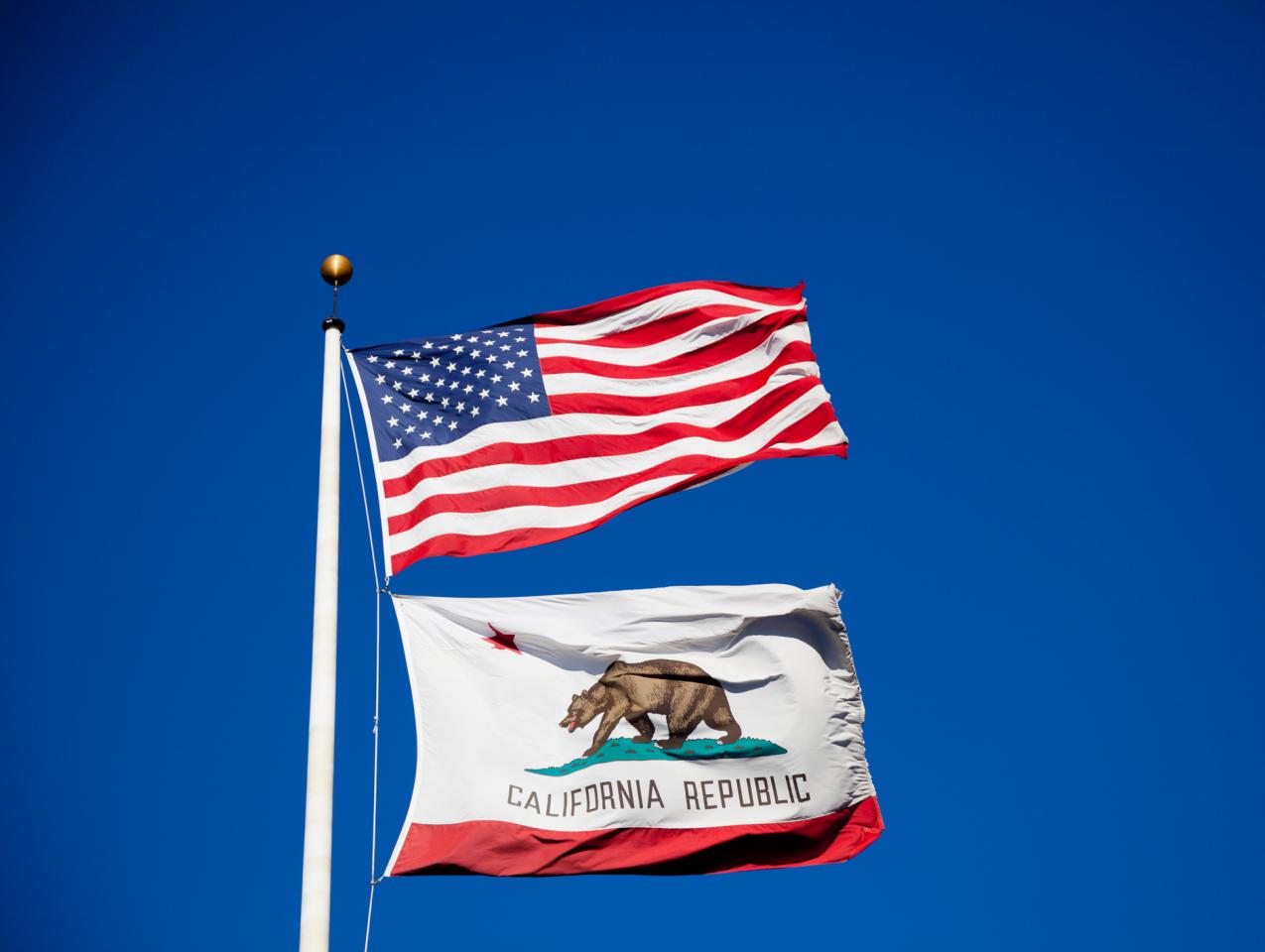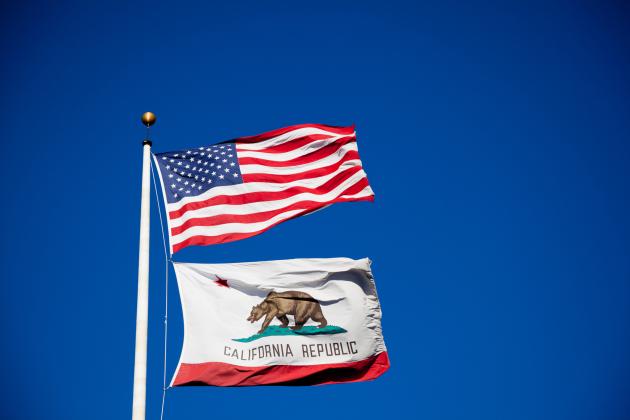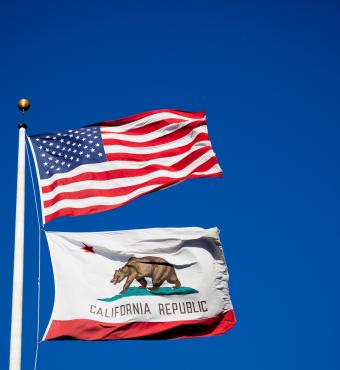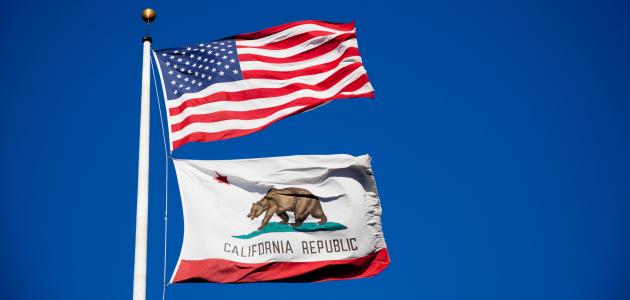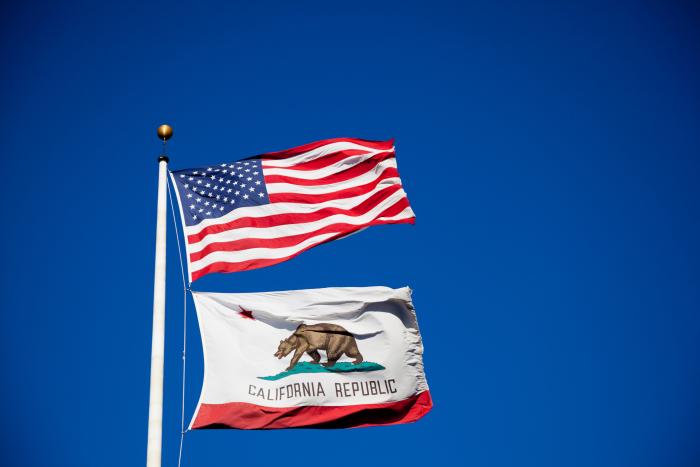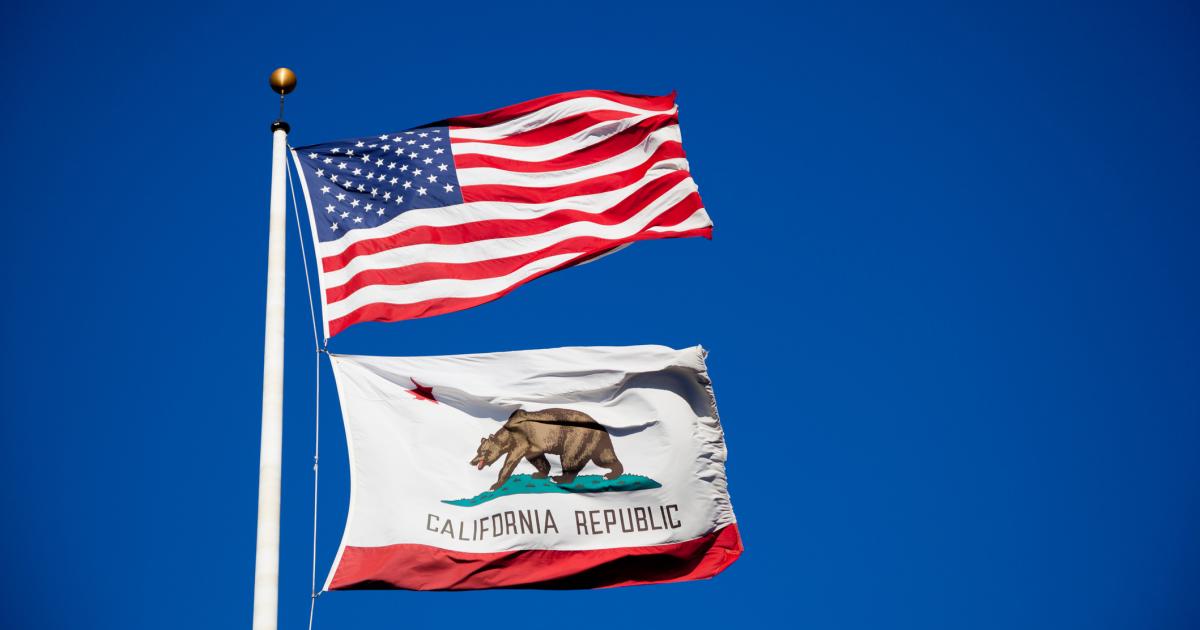- California
Give California governor Gavin Newsom and his counterpart in Florida, Ron DeSantis, credit for knowing how to exploit the other’s state for political gain—Newsom raising his national profile by purchasing cable television air time earlier this month in Florida (and, afterwards, running newspaper ads in Texas) to defend the virtues of progressive states, with DeSantis tossing red meat to the Republicans’ conservative base by ridiculing the Golden State as a blue haven that’s nonetheless shedding population.
It’s time for the two governors to stop their sniping and come up with a new and maybe more productive avenue for promoting their respective ambitions.
My suggestion: Newsom should push for California to hold the nation’s first Democratic presidential primary in 2024 (or at least be one of the first five states to hold a primary or caucus), with DeSantis advocating the same for the GOP and the Sunshine State.
Sure, it’s self-serving. Should the two governors win their respective primaries, they might steamroll their way to their parties’ presidential nominations.
But Newsom and DeSantis would be doing the nation a favor in at least two regards, beginning with the fragile state of America’s major parties. For Republicans: how to cope with the toxicity of a third Trump presidential run should it occur. For Democrats—and this is assuming President Biden doesn’t seek re-election: the weakness of a presidential field possibly headlined by a wobbly Vice President Kamala Harris.
Start the Republican process in Florida and, assuming both DeSantis and Trump are on the ballot, the GOP maybe brings an early end to its Trump conundrum. DeSantis might not last long if he can’t carry his home state. But were the bullying Trump to lose in his adopted home state, it might prove true the words of the pugilist-philosopher Mike Tyson: “Everybody has a plan until they get punched in the mouth.”
A front-of-the-herd California primary could offer similar clarity for Democrats. Should Newsom not prevail in his backyard, so much for his presidential prospects (note: Democrat Jerry Brown and Republicans Ronald Reagan and Pete Wilson all attempted presidential runs while governing in Sacramento—Reagan being the only one who managed to capture the White House, albeit six years after leaving office).
But what about Newsom’s fellow Californian, the vice president? Harris has been on a California statewide ballot four times dating back to 2010 (twice as state attorney general, once each for US Senate and vice president). If she can’t beat Newsom in a showdown in her backyard, what does that say about her national viability?
I’d add one X factor to an early Democratic showdown in California: Rep. Ro Khanna, whose South Bay congressional district encompasses parts of Silicon Valley. Khanna preaches party unity. But imagine a field devoid of Bernie Sanders, who’s 14 months older than the soon-to-be octogenarian Biden. With Khanna stepping into the party’s socialist void, California Democrats would have the equivalent of a visit to a gas station (granted, a painful Golden State metaphor): do they tank up with Harris’s regular blend of progressivism (talking a good game but not fighting to killing the filibuster); Newsom’s midgrade blend (more woke in his words and deeds, with weasel words when it comes to single-payer care); or the premium leftist blend that would be a Khanna presidential run (a “pro-growth progressive” who co-chaired Sanders’s last presidential run and was one of only nine House Democrats who preferred Bernie to Hillary Clinton in 2016).
The second benefit to early 2024 showdowns in Florida and California: the possibility of policy supplanting personality as candidates flock to two states that embody America’s many differences, be they cultural, economic, or relating to the fundamental question of the government’s role in everyday life. Take it a step further, with Newsom and DeSantis as the presidential nominees, and the 2024 contest comes down a simple question: Is Florida or California the better model for how America should be governed and experienced?
There is, of course, one enormous hole in my scenario: both parties’ unwillingness to give these “mega” states (California and Florida being homes to the nation’s first- and third-largest populations) an oversize role in the presidential selection process.
Florida held January primaries in 2008 and 2012 in violation of both national parties’ rules, only to revert to March primaries in 2016 and 2020. Though the Sunshine State could see four or more residents in a crowded GOP field (by including senators Marco Rubio and Rick Scott), at present there’s no clamor to advance its 2024 primary.
California’s attempts at presidential relevance have been more quixotic—a cross between Charlie Brown trying to kick a football and Sisyphus pushing a boulder uphill.
The Golden State held early-March primaries in 2000 and 2004, only to get lost in “Super Tuesday” crowds each time—15 states crashing California’s party in 2000 and nine doing the same in 2004. California then moved to the first Tuesday in 2008, only to have 23 states do the same.
Still, were California Democrats to decide the nation’s most populous state deserves to be at the front of the primary slate in 2024, there’s an added complication: the Golden State may have already missed its window of opportunity. Last month the Democratic National Committee’s Rules and Bylaws Committee heard sales pitches from 16 states and Puerto Rico as to why each deserved to vote first in 2024. One state that didn’t bother to show up and argue its case: California (look for the committee to make a recommendation in August, followed by the Democratic National Committee taking up the matter in September).
The same West Coast indifference applies to the Democrats’ search for a 2024 national convention site – i.e., the presidential ticket’s coming-out party. Four cities – Atlanta, Chicago, New York City, Houston – reportedly are under consideration. Los Angeles (the host city in 2000 and 1960) and San Francisco (scene of the Democrats’ 1984 convention) apparently didn’t bother to compete.
Maybe the Golden State doesn’t care if it goes unrewarded or gets lost in the crowd (yet again) in 2024. If so, it’s a curious departure from Newsom’s current efforts to position California at the center of progressive progress in America—the foil to red states’ more conservative ways.
Or, California’s seeming indifference to the 2024 lineup shuffle may be doing Democrats a favor. To embrace the Golden State’s leftward drift is also to laud its governor, Newsom. But one longtime observer of California politics, the journalist Jerry Roberts, isn’t impressed with the notion of Newsom as a Democratic presidential savior. “Prince Gavin, would-be King, would lose 40 states,” Roberts recently tweeted, suggesting the California’s outspoken governor is more lemming than leader (it’s worth noting that Michael Dukakis carried only 10 states as the Democrats’ presidential nominee in 1988—his candidacy undermined by the notions that Dukakis was too liberal for the nation’s tastes and too lax on criminal justice, and that his home state of Massachusetts was poorly governed).
Not that Newsom is likely to commit the same mistakes as Dukakis (beginning with that unfortunate tank ride), but the dynamics would be the same: a decidedly blue state and its governor portrayed as outside America’s mainstream.
Which is why it’s maybe in the Democrats’ best political interest to let California “hide in plain sight” in 2024—part of the presidential selection process, but not an early determinant of who gets the nomination.







